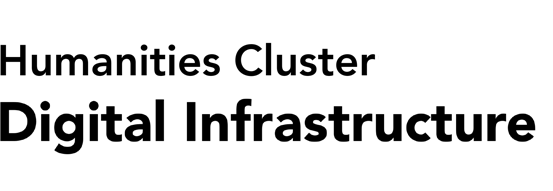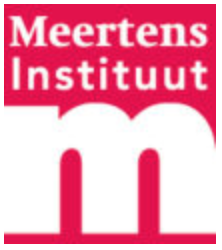Infrastructure Projects
Infrastructure projects are an important part of the Digital Infrastructure department. These projects contribute directly to the department's goal of creating a European and national infrastructure for humanities research. These are almost always projects in which there is intensive collaboration with other parties from the humanities or heritage sector.
Our staff and developers have extensive experience in overseeing and implementing complex projects of this kind. The output of such projects are often reusable components. Thus, even after these projects have been completed, the our department usually continues to play a major role in managing the delivered infrastructure. A large collection of our open source software can be found on our GitHub repository.
CLARIAH is the most important infrastructure project we are working on at the moment. In CLARIAH, we are working with several universities and various heritage institutions on facilities for digital humanities research. The project is led by the HuC and our department occupies key technical position in several of its work packages, including the leadership of WP2 Technology.
We are always open to new collaborations and new infrastructure projects for the humanities. Please contact us to discuss what our role and added value could be. For more information: Arno Bosse (Manager, Funding & Partnerships) or Menno Rasch (Director DI).
Examples of current research infrastructure projects with DI participation include:
- GLOBALISE 2022-2027, Funding NWO-Groot. The goal of the project is to develop an online infrastructure to unlock key series of Dutch East India Company documents with advanced new research methods. The DI department is providing handwritten text recognition (HTR), a text repository, and further front & back-end development.
- CLARIAH-Plus, 2018-2022, Funding: NWO-Infrastructuur. DI is contributing technical expertise and collaborating with various universities and heritage institutions to develop infrastructure for digital humanities research. The HuC is the leader of a large number of work packages in CLARIAH. The consortium PI is the director of the Huygens Institute at the HuC.
- Golden Agents 2016-2022, Funding: NWO-Groot. Infrastructure combining semantic web technologies with multi-agent technologies. The infrastructure makes it possible to study the relationships and interactions between producers and consumers and between the various branches of the creative industry in the Dutch Golden Age.
- REPUBLIC 2018-2023, Funding: NWO-Groot. REPUBLIC stands for REsolutions PUBLished In a Computational environment. The project provides full-text, online access to all written and printed resolutions of the States General (1576-1796). The project is a collaboration between the Huygens Institute, the HuC-DI department, and the National Archives in The Hague.
- Nederlab 2013-2018, Funding: NWO-Groot. Web application that allows researchers to search and analyse scattered digital historical corpora in an unified environment; this applies to both the texts themselves and their metadata.
- Oorlog voor de Rechter 2023-2027, Funding: ministries of VWS, OCW and Justice. The aim of this project is to digitise the CABR and make the digitised records readable and searchable. The DI department will help make all texts on the scans - both handwritten and typed - machine-readable; recognise certain documents - such as decrees, photographs, statements of intelligence etc; and link names, places and events to external collections and files through automatic pattern recognition. The project is a collaboration between Huygens Institute, the DI Department, National Archives, Netwerk Oorlogsbronnen and NIOD.




